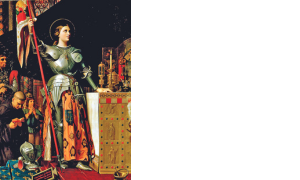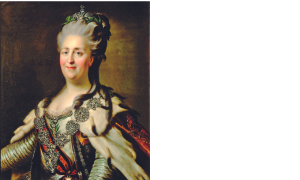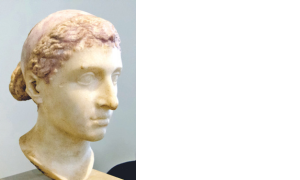
Feb 27 2024.
views 154Long before glass ceilings and equality were spoken about, there were many women who played great roles. With women all over the world set to celebrate Women’s Day in March, we look at a few women who did great things and were way ahead of their time in an era where women played traditional roles.
Joan of Arc

On January 6, 1412, Joan of Arc was born to pious parents of the French peasant class in the village of Domremy, near the province of Lorraine. At a very early age, she was said to have heard the voices of St. Michael, St. Catherine and St. Margaret. Stating that she is acting under divine guidance she is said to have led the French army in a victory at Orléans resisting an English attempt to conquer France during the Hundred Years’ War. Joan was later captured and burned to death by the English and their French collaborators as a heretic.
Years later Charles VII ordered an inquiry into the trial and after further investigations on the order of Pope Calixtus III proceedings were instituted in 1455–56 that revoked and annulled the sentence of 1431. In 1920, Pope Benedict XV canonized her. She is considered a national heroine of France.
Catherine the Great

Catherine II was the empress of Russia. Known as Catherine the Great, she was the longest-reigning empress of Russia. Catherine’s greatest accomplishments include establishing educational reform, championing the arts, and extending Russia’s borders in the largest territorial gain since Ivan the Terrible. Catherine was born on May 2, 1729, as Sophie Friederike Auguste. She grew up in Stettin, Poland, as a minor German princess. Upon request of the Russian Empress Elizabeth, Sophie travelled to Russia to meet the Grand Duke of Russia, Peter. The two were quickly engaged, and Sophie changed her name to Catherine.
The Grand Duke Peter and Catherine were married, making her the Grand Duchess of Russia. After their son Paul was born, Catherine’s husband passed away under suspicious circumstances. Catherine II assumed the throne on December 25, 1761. What followed was decades of expansion of Russian culture through the arts, expansion of territory through war, and the expansion of liberal philosophies—all done through military might and diplomatic prowess. Catherine the Great is one of the most well-documented empresses of all time, due to her extensive writing of countless memoirs.
Elizabeth I

Known as the virgin queen, Elizabeth I was Queen of England and Ireland from 17th November 1558 to 24th March 1603. She was the last Tudor monarch having died without children, not wanting to marry as she believed that it would make her less powerful. She was the daughter of Henry VIII and Anne Boleyn. Her mother was beheaded by the orders of her father when she was just a child and she was even removed from the line of succession.
Elizabeth received a good education and is said to have been fluent in many languages and is said to have been very clever. Later she succeeded to the throne after the death of her half sister Mary and went on to be a popular queen. She had a circle of experienced advisers, returned the country from Catholicism to Protestantism, is said to have been loyal to her ministers, and stepped into the Golden Age where discoveries were made and the arts flourished. Her victory in the Spanish Armada was seen as one of their biggest triumphs.
Cleopatra

Cleopatra the VII has captivated people all over the world and continues to do so today. The daughter of Auletes, Cleopatra is said to have been the last active ruler of the Ptolemaic Kingdom of Egypt, ascending the throne after the death of her father, at the age of about 18. She ruled with her siblings jointly but was forced to flee Egypt for Syria where she gathered an army of mercenaries and returned to face her brother’s forces in a civil war at Pelusium. She was known to have been politically astute, aligning herself with powerful Roman men like Julius Ceaser and after his murder, Mark Antony, who both fathered her children.
Cleopatra could speak several languages, was diplomatic and used that to strike up strategic alliances, promoted arts and is believed to have also brought in reforms to strengthen Egypt’s economy. She ruled Egypt from 51 – 30 BC but after Marc Antony was killed and she learned that the enemy Octavius was on his way to Egypt, she killed herself. She was about 39 years old at the time.
Compiled by Kshalini Nonis
0 Comments